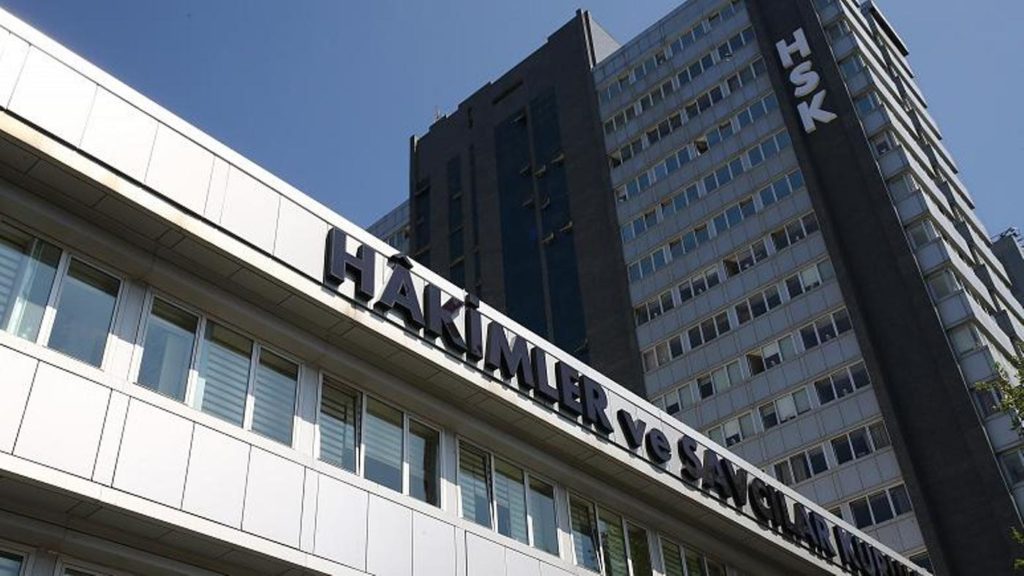The Council of Judges and Prosecutors (HSK), Turkey’s top judicial board, has recently reassigned 506 judges and prosecutors, including several facing bribery and other corruption investigations, Turkish media reported on Thursday.
The HSK decides on the appointment and promotion of members of the judiciary.
This reassignment involved 480 judicial and 26 administrative court officers.
Among the noteworthy reassignments is that of İstanbul’s Anatolian Chief Public Prosecutor Gökalp Kökçü, known for his investigations into illegal betting involving prominent social media figures and sports club executives.
Kökçü, currently the subject of three bribery investigations, has been assigned to the Erzurum Regional Administrative Court, sparking speculation about the HSK’s motives, particularly regarding the sensitive investigations Kökçü was leading. His replacement has not yet been named.
Another significant shift involves Deputy Chief Public Prosecutor Mesut Erdinç Bayhan, who also worked at the Anatolian Chief Public Prosecutor’s Office in İstanbul and was recently interrogated over bribery allegations. Bayhan has been reassigned to the İstanbul Regional Court of Justice.
Similarly, former İzmir Deputy Chief Public Prosecutor Okan Bato, who is facing trial for an unexplained increase in his personal assets and is also suspected in the 2019 murder of a politician, has been transferred from the southern Antalya Regional Court of Justice to Erzincan province.
Beyond the allegations of illegal financial gain and murder, an HSK report also outlines other accusations against Bato. He is suspected of facilitating the escape of a crime syndicate leader and demanding TL 500,000 from a businessman. Additionally, he is accused of having close ties to former intelligence agency members and facilitating the illegal closure of cases against them.
During his tenure as a prosecutor in İzmir, Bato led multiple investigations into the Gülen movement, a group accused by Turkey of orchestrating a failed coup in 2016. Bato is also allegedly involved in a scheme known as the “FETÖ market,” which involves targeting businesspeople with supposed ties to the Gülen movement and extorting money from them in exchange for dropping charges.
FETÖ is a derogatory term used in Turkey to describe the Gülen movement as a “terrorist group.”
Turkish President Recep Tayyip Erdoğan had lambasted the judiciary in 2013 after a graft probe targeting the highest echelons of his government exposed a bribery scandal. He accused the judges and prosecutors as well as police officers involved in the investigation of working for the Gülen movement, a faith-based group critical of his administration.
Up until 2016, Erdoğan tried to redesign the judiciary by appointing loyalists to critical posts. In July 2016 a botched coup took place, the aftermath of which saw an unprecedented crackdown, mainly on Erdoğan’s opponents.
The Turkish government accuses the Gülen movement of masterminding the failed coup and labels it a “terrorist organization,” although the movement strongly denies involvement in the coup attempt or any terrorist activity.
Following the coup attempt, the Turkish government removed more than 130,000 civil servants, including some 4,000 judges and prosecutors, from their jobs due to alleged Gülen links.
This recent reshuffle follows allegations of corruption within the judiciary.
In a letter sent on October 6 to the HSK, İstanbul Chief Public Prosecutor İsmail Uçar detailed allegations of bribery, nepotism and other irregularities within the judicial system.



